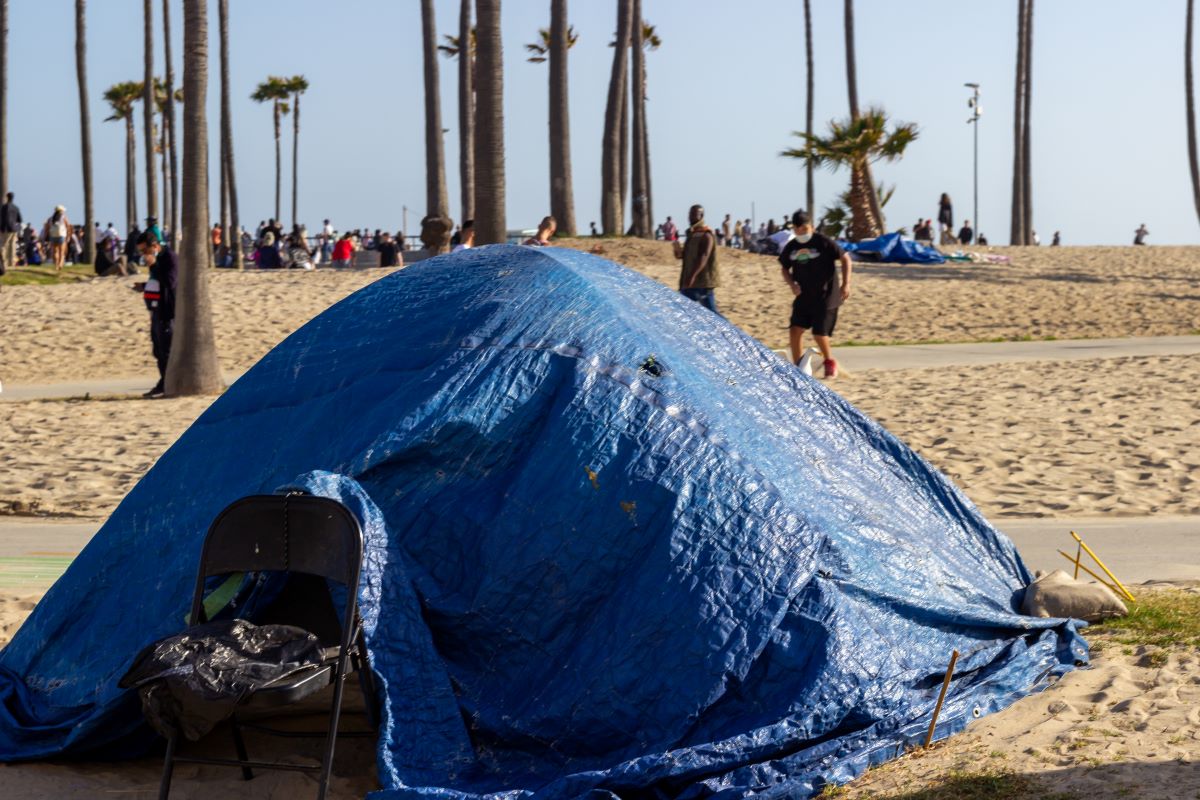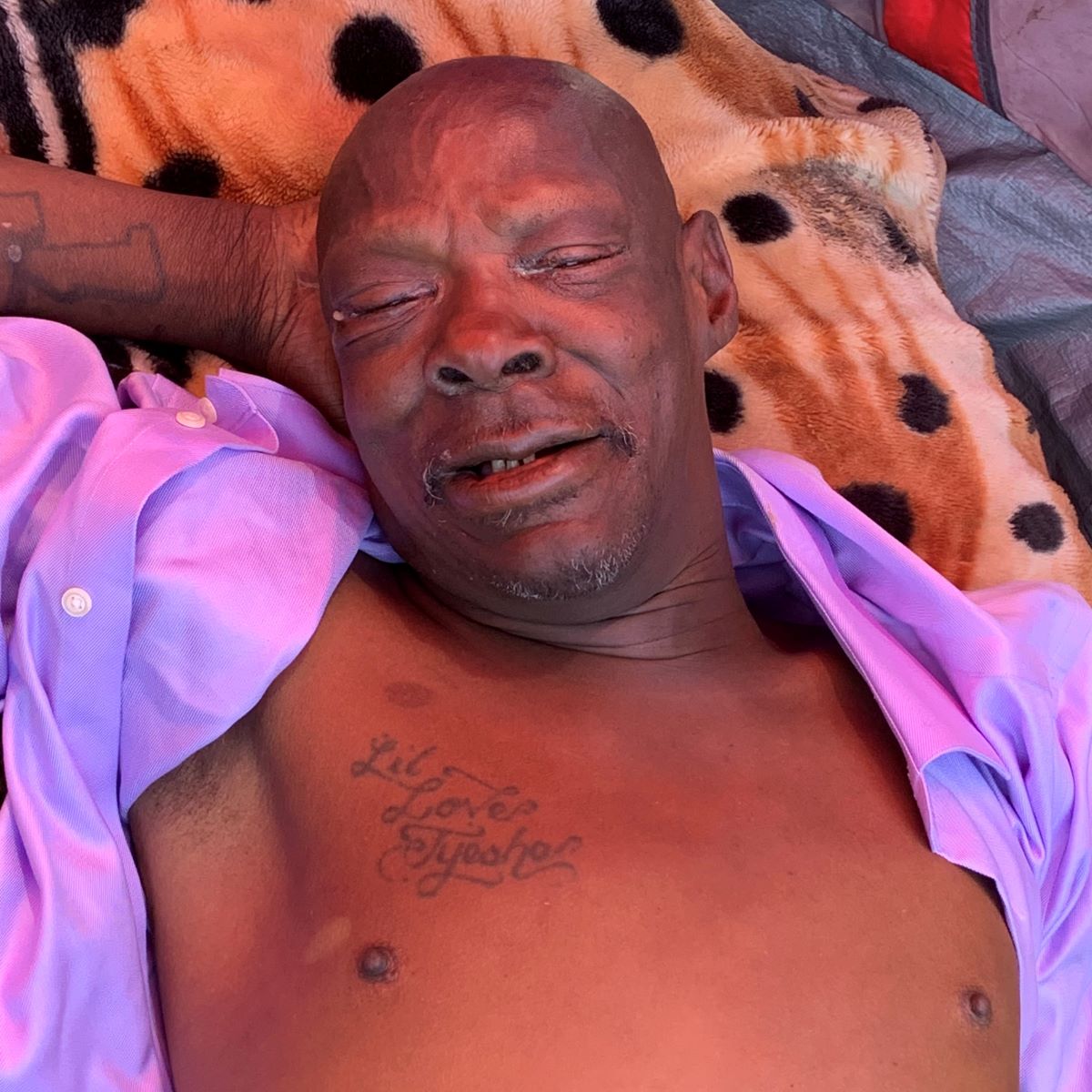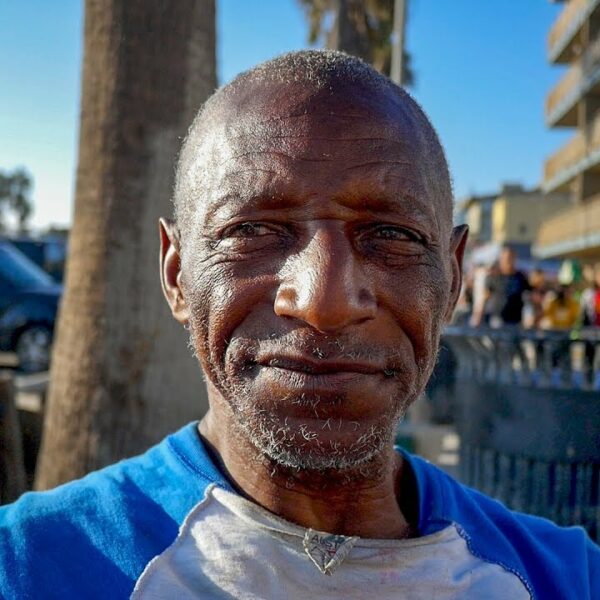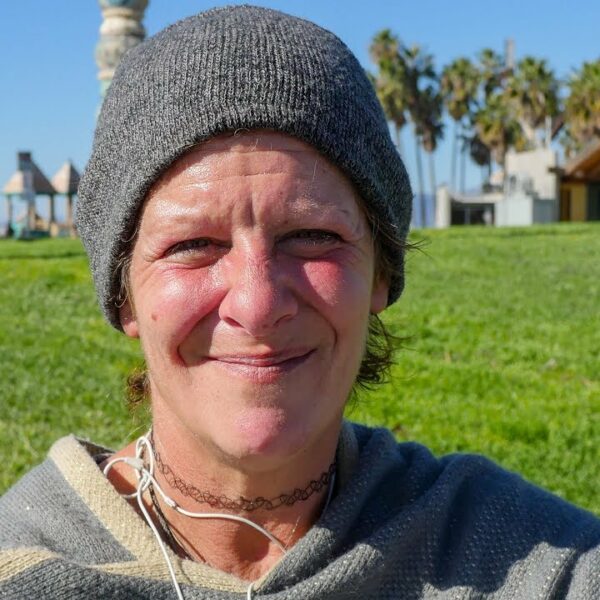Robert Karron Shares the Lived Experience of Unhoused Individuals in Venice Beach
Editor’s Note: Robert Karron lives in Venice Beach. He enjoys collaborating with the unhoused people in his neighborhood to create statements that attest to the complexities of their lives. Robert started this project to present details of people’s lives that tend not to come across in standard articles.
“Only in these direct, sometimes meandering, always present pieces, I think, can one remember that these are unique persons whose beliefs, thoughts, histories, and experiences will never be repeated again, in the history of time.” ~ Robert Karron
This is the final part in our three-part series – here are links to part one and part two.
Meet David
My name is David, and I’m 58 years old. I’ve been homeless since 2014. I grew up in San Dimas. My childhood was great. My mom took care of us (I have three brothers), and my dad worked three jobs—all janitorial. One of my brothers passed away, another is a radiologist, and another is a school principal.
I had great adventures in high school; it was fun. My favorite class was History (it was easy for me to remember the events), and my favorite teacher was Miss Greenway in the 7th grade. She was a friend of the family—she went to church with us.
After high school, I wanted to go to the Air Force and be a jet pilot. I just loved jets. I loved that power. Watching them in the sky, I fell in love.
But I ruined that—I got caught carrying a pound of marijuana from LA to San Dimas. They didn’t let me go to the Air Force after that. It’s legal now, of course, but back then.
Well, after that, I was kind of lost, stuck. That’s all I’d wanted to do—be a jet pilot. I had no other dreams; I didn’t know what to do in life. I moved to South Central to be with my grandfather, to help him out with some properties he owned. But I got caught up in rock cocaine, and that’s when my life went downhill. It’s hard to get off that.
Once you start, it’s hard. I was on rock cocaine from 1984 till 1990. I was living in one of my grandfather’s apartments when I was arrested for dealing. They gave me 12 years, but I got out after 6. Then I got married.
I met Cynthia in a fire camp when I was in prison. Fire camp is when you’re in prison, and you get privileges to fight fires in the mountains. Cynthia was a friend of a friend, and I saw her there. My friend asked if I wanted to write her, and I said sure.
We wrote to each other for two years.
After I got out, she said, “Come meet with me.” I said, Sure. Being with Cynthia was wonderful. I finally had someone who wanted me and who trusted me. With rock cocaine, you burn a lot of bridges—so it was great being with her. She asked me to marry her, and I married her.
We had two kids. My daughter is in her mid-20s now; last I heard, eight years ago, she was living with her mom in Washington State. This tattoo on my chest—it’s her name. It says ‘Lil’ before the name because the last time I saw her, she was only 6.
My son is in his mid-30s now (he’s married, and he has three girls). He lives in Washington State, too. Haven’t seen him since he was a kid, either.
My marriage broke up because I was arrested again, and they gave me 27 years to life. I was in San Quentin for that. It was just for a misdemeanor—I had a bank card in my backseat that wasn’t mine—but it was my ‘third strike,’ so I was railroaded.
After eight years, my wife decided she wanted to go on her way, so I had to let her go on her way. She wrote me a letter, saying she was leaving me. I ripped it into pieces. I was so hurt. But I have to admit, it also made me better. It gave me a determination to be better than I was before.
Prison is a different world.
Mentally, you have to accept everything about it. There are so many rules, and there was so much violence—sometimes, there were race riots. If you fought, you’d be in lockdown for a whole year. A whole year, just you in your room, with your boxer shorts. But you HAD to fight. You had no choice. Otherwise, you’d get stabbed.
That’s why I can’t be at a shelter now—because I get flashbacks; it reminds me of prison. But I have to admit— prison changed me into a better man. That’s the only reason I don’t rant and rave on the corner about what the state did to me—because, if they hadn’t done it, I probably would have never changed; I wouldn’t have got off drugs.
After 11 years, they let me out in 2014. They decided they’d made a mistake and took me back to court, all the way down to San Diego because that’s where I was sentenced.
They said: “We made a mistake, David. You’re free to go. Here’s homelessness.”
You see, they opened the door—and then I was homeless. I walked out in my jumpsuit and my flip-flops with a smile on my face because I was happy to be free. But I was also homeless. Just like that. I was like, Gee, thanks. What about all those things I lost? But it was too late for that.
Do the police ever bother me for sleeping here? Frequently. But, when they do that, I just move to another spot. When they tell you, you can’t sleep here—you move somewhere else, that’s all. You just move around.
This spot, here, is right by the freeway, out of the way from the residences—so they don’t bother you as much. It takes longer for them to tell you that you have to go.
If I could rent something for a few hundred dollars a month, I’d do that in a heartbeat. I should be getting Social Security, but I haven’t been able to meet all the requirements, so I’m not getting the cash yet. When you’re moving around a lot, like I am, it’s hard to make all the appointments.
If I had my Social Security payments, I wouldn’t be here. I’d be in my own apartment. I can’t wait for that to happen. I can’t wait for them to say: “We have your housing, David!”
This sucks, right here. They make me jump through so many hoops. I’ve been waiting for housing for over six months. Someone came a while ago and took my name and a copy of my ID, but nothing has happened. I’m still waiting.
I’ve been sick lately, so I’ve just been lying around. But, normally, when I’m not sick, I’m either riding my bike or dancing on that corner. Just to have something to do. (Maybe someday I’ll get discovered.) I just listen to the traffic, and I feel the music inside me; then I dance to it.
I’ve liked music since I was a kid. My mother bought me an Elvis Presley album, and he became my favorite. He was a new trend—something different from what I’d heard. I had all his albums.
I also recycle some when I’m not sick. People throw away a lot of things, so I get stuff from the alleys, and I bring it to the Culver City station [2 miles away]. I make enough money from that to buy some food and some beer. (Sometimes even some cigarettes.)
My mom died a while ago, but my dads are still alive. My real dad is in LA, and my stepdad is in San Dimas. They know where I am, but they’re still stuck in the 80s when I was on rock cocaine. Even though I’ve tried to show them how I represent myself, they still don’t think I’ve changed.
Do people give me money when I dance? No, they don’t. They used to, but lately, my luck hasn’t been very strong in that department. The dancing—it’s just for me.














